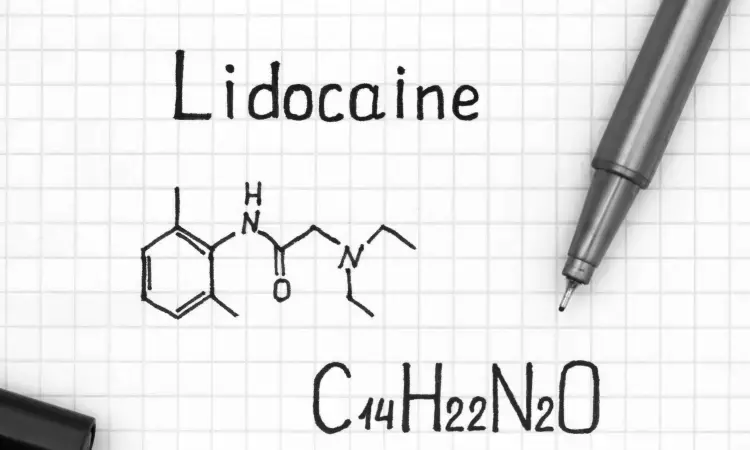- Home
- Medical news & Guidelines
- Anesthesiology
- Cardiology and CTVS
- Critical Care
- Dentistry
- Dermatology
- Diabetes and Endocrinology
- ENT
- Gastroenterology
- Medicine
- Nephrology
- Neurology
- Obstretics-Gynaecology
- Oncology
- Ophthalmology
- Orthopaedics
- Pediatrics-Neonatology
- Psychiatry
- Pulmonology
- Radiology
- Surgery
- Urology
- Laboratory Medicine
- Diet
- Nursing
- Paramedical
- Physiotherapy
- Health news
- Fact Check
- Bone Health Fact Check
- Brain Health Fact Check
- Cancer Related Fact Check
- Child Care Fact Check
- Dental and oral health fact check
- Diabetes and metabolic health fact check
- Diet and Nutrition Fact Check
- Eye and ENT Care Fact Check
- Fitness fact check
- Gut health fact check
- Heart health fact check
- Kidney health fact check
- Medical education fact check
- Men's health fact check
- Respiratory fact check
- Skin and hair care fact check
- Vaccine and Immunization fact check
- Women's health fact check
- AYUSH
- State News
- Andaman and Nicobar Islands
- Andhra Pradesh
- Arunachal Pradesh
- Assam
- Bihar
- Chandigarh
- Chattisgarh
- Dadra and Nagar Haveli
- Daman and Diu
- Delhi
- Goa
- Gujarat
- Haryana
- Himachal Pradesh
- Jammu & Kashmir
- Jharkhand
- Karnataka
- Kerala
- Ladakh
- Lakshadweep
- Madhya Pradesh
- Maharashtra
- Manipur
- Meghalaya
- Mizoram
- Nagaland
- Odisha
- Puducherry
- Punjab
- Rajasthan
- Sikkim
- Tamil Nadu
- Telangana
- Tripura
- Uttar Pradesh
- Uttrakhand
- West Bengal
- Medical Education
- Industry
Rare case of Hemolysis and acquired methemoglobinemia after application of topical anaesthetic agents: A report

Methemoglobin (MetHb) is a rare condition in which dysfunctional form of hemoglobin that is incapable of transporting oxygen, thus reducing blood oxygenation and potentially inducing tissue hypoxemia. Some drugs, like dapson, nitroglycerine, nitroprusside, nitric oxide, sulfanamides, phenazopyridine, chloroquine, lidocaine, prilocaine, and benzocaine, are known to cause acquired methemoglobinemia.
Cocaine-derived anesthetics, including lidocaine and benzocaine, are extensively used in medical procedures, such as endoscopy and bronchoscopy moreover, they may be used topically. Researchers in this case study present a unique and atypical case of methemoglobinemia and hemolysis induced by self-administration of topical lidocaine and benzocaine.
The case study describes a 25-year-old Persian male presenting with generalized weakness, dizziness, headache, and cyanosis. In addition, he had genital warts starting 3 weeks ago, which were self-treated with podophyllin, resulting in itching and pain. The case study is published in Journal of Medical Case Reports.
The patient surprisingly reported that he used four ointment tubes daily: two tubes of benzocaine ointment 5% (60 g/10 g) and two tubes of lidocaine ointment 5% (70 g/10 g). He had no history of smoking, and his family history of polycythemia and hematologic, cardiovascular, and pulmonary disorders was negative. Physical examination, reported he was alert and not distressed, and skin pallor and perioral and acral cyanosis were remarkable.
According to the lab data, signs and symptoms of methemoglobinemia and hemolysis were diagnosed. Considering the hemolysis, ascorbic acid was used for treatment. The patient was discharged after 5 days with normal arterial blood gas and pulse oximetry and no signs and symptoms.
In conclusion, commonly used drugs may cause acquired methemoglobinemia. Over-the-counter topical anesthetics, including benzocaine and lidocaine, are supposed to induce methemoglobinemia. Self-administration of these drugs is an important issue that may cause life-threatening conditions. Thus, methemoglobinemia should be considered in patients presenting with dyspnea, dizziness, hypoxia, and cyanosis ended the researchers.
Reference: Khajavirad, N., Daftari, G. & Jelodar, M.R. Hemolysis and acquired methemoglobinemia associated with lidocaine and benzocaine topical application: a case report. J Med Case Reports 17, 146 (2023). https://doi.org/10.1186/s13256-023-03898-x.
Dr Kamal Kant Kohli-MBBS, DTCD- a chest specialist with more than 30 years of practice and a flair for writing clinical articles, Dr Kamal Kant Kohli joined Medical Dialogues as a Chief Editor of Medical News. Besides writing articles, as an editor, he proofreads and verifies all the medical content published on Medical Dialogues including those coming from journals, studies,medical conferences,guidelines etc. Email: drkohli@medicaldialogues.in. Contact no. 011-43720751


